KPAC23: Margins | Centres of Security and Rule of Law
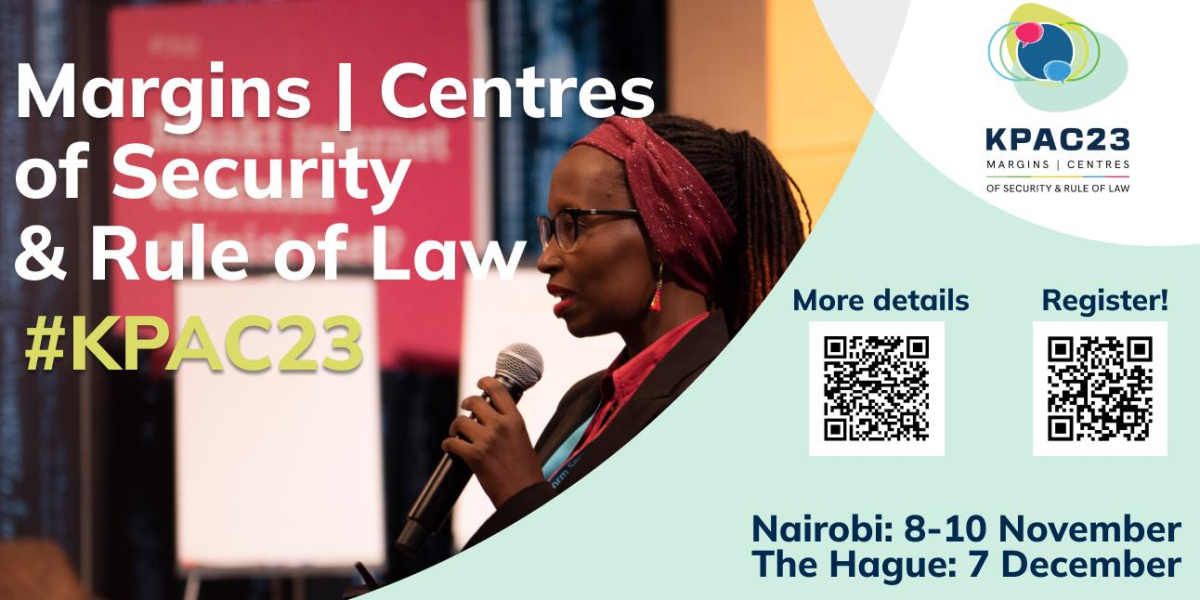
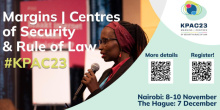

IDLO is working to promote good governance, fairness and equality through the rule of law. While corruption negates the benefits of development, strengthening the capacity and integrity of institutions promotes economic prosperity and increases citizen’s confidence in public administration, justice and the rule of law.
Through its programs, IDLO is working to combat all forms of corruption by making justice institutions cleaner and more responsive, reducing conflicts of interest in procurement and public life, and enhancing the capacity of institutions and justice actors to fight fraud and economic crime.
![]() An overview of IDLO's anti-corruption work
An overview of IDLO's anti-corruption work



The continued challenges Mongolia faces in implementing its anti-corruption reforms demonstrate a clear need for improvement in the immediate detection of corruption cases and stronger international cooperation and mutual legal assistance in corruption-related criminal matters.


EVENT | Monday, 13 December 2021 | 12:00 - 13:00 CET
A Rule of Law Approach to Promoting Integrity and Rebuilding Trust
Special event at the ninth session of the United Nations Convention against Corruption Conference of States Parties (CoSP)
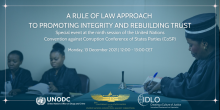
EVENT | Monday, 11 October 2021 | 17.45 - 18.45 CEST
Fundamental Rights Forum 2021 - Youth Championing a Corruption-Free Europe and Eastern-Southern Neighbourhood: A Dialogue on Opportunities to Co-produce Justice, Rule of Law and Accountability
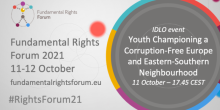
IDLO Statement at the 3rd Meeting of the G20 Anti-Corruption Working Group
Rome, Italy
Delivered by Liliana De Marco, Director of External Relations and Partnerships, IDLO
It is a pleasure to take the floor on behalf of the International Development Law Organization (IDLO).
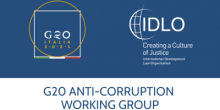





|
Event
7 November, 2023 |